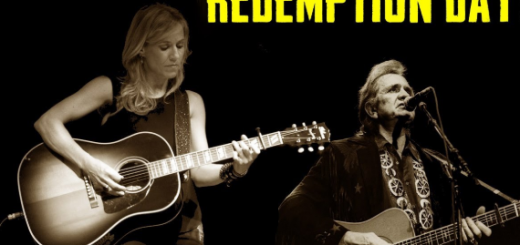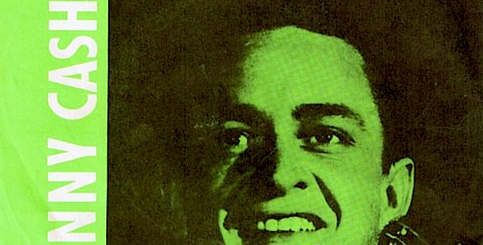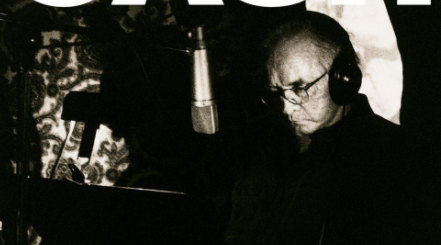A Boy Named Sue by Johnny Cash Lyrics Meaning – The Struggle for Identity in a Name
Lyrics
And he didn’t leave much to Mm and me
Just this old guitar and an empty bottle of booze
Now, I don’t blame him ’cause he run and hid
But the meanest thing that he ever did
Was before he left, he went and named me Sue
Well, he must of thought that it was quite a joke
And it got a lot of laughs from lots of folks
It seems I had to fight my whole life through
Some gal would giggle and I’d get red
And some guy’d laughed and I’d bust his head
I tell ya, life ain’t easy for a boy named Sue
Well, I grew up quick and I grew up mean
My fist got hard and my wits got keen
Roam from town to town to hide my shame
But I made me a vow to the moon and stars
I’d search the honky-tonks and bars
And kill that man who gave me that awful name
Well, it was Gatlinburg in mid-July
And I just hit town and my throat was dry
I thought I’d stop and have myself a brew
At an old saloon on a street of mud
There at a table, dealing stud
Sat the dirty, mangy dog that named me Sue
Well, I knew that snake was my own sweet dad
From a worn-out picture that my mother’d had
And I knew that scar on his cheek and his evil eye
He was big and bent and gray and old
And I looked at him and my blood ran cold
And I said, “My name is Sue, How do you do?
Now you gonna die”
Yeah, that’s what I told ’em
Well, I hit him hard right between the eyes
And he went down, but to my surprise
Come up with a knife and cut off a piece of my ear
But I busted a chair right across his teeth
And we crashed through the wall and into the street
Kicking and a-gouging in the mud and the blood and the beer
I tell ya, I’ve fought tougher men
But I really can’t remember when
He kicked like a mule and he bit like a crocodile
I heard him laugh and then I heard him cuss
He went for his gun and I pulled mine first
He stood there lookin’ at me and I saw him smile
And he said, “Son, this world is rough
And if a man’s gonna make it, he’s gotta be tough
And I know I wouldn’t be there to help you along
So I give you that name and I said goodbye
I knew you’d have to get tough or die
And it’s that name that helped to make you strong”
Yeah, he said, “Now you just fought one hell of a fight
And I know you hate me, and you got the right
To kill me now, and I wouldn’t blame you if you do
But you ought to thank me, before I die
For the gravel in your guts and the spit in your eye
‘Cause I’m the son-of-a-bitch that named you Sue
Yeah, what could I do, what could I do?
I got all choked up and I threw down my gun
Called him my pa, and he called me his son
And I come away with a different point of view
And I think about him, now and then
Every time I try and every time I win
And if I ever have a son, I think I’m gonna name him
Bill or George, any damn thing but Sue, I still hate that name, yeah
Johnny Cash’s ‘A Boy Named Sue’ has stood the test of time as a powerful narrative of struggle, identity, and reconciliation. With a blend of wit, grit, and the Man in Black’s iconic drawl, the song confronts the ramifications of a name and the rocky road to masculinity.
Though on the surface it charms listeners with its humorous storytelling and energetic performance, the song harbors deeper implications about the societal constructs of gender and the importance of a father’s role in shaping a boy’s life.
The Quest for Masculinity in Five Aggressive Stanzas
At first glance, ‘A Boy Named Sue’ unfurls as a riotous revenge tale infused with the relentless drive of a Western showdown. The protagonist’s journey, steered by a childhood marred by bullying and derision, becomes a quest for masculine affirmation.
Cash’s raspy tone encapsulates the raw determination of Sue’s plight as he battles through each verse, his fists as much his dialogue as the lyrics themselves. It’s an emblematic manifestation of how traditional masculinity responds to challenge – with resilience and tenacity.
A Rolling Stone in Search of an Identity
Sue’s nomadic existence, bouncing from town to town, mirrors the restless spirit of folk and country music’s hobos and drifters. But unlike those symbols of Americana, Sue is not in search of land or gold; his riches lie in vindication and self-discovery.
This odyssey starkly represents an individual’s struggle against the rigid expectations of society, further illustrating how a simple personal marker, like a name, can dictate the course of one’s life.
Unpacking the Secret Wisdom of Sue’s Father
The climax of Sue’s journey is not only in the physical confrontation with his estranged father, but in the revelation of a twisted paternal lesson. The father’s decision to name his son Sue is unveiled as a deliberate act intended to steel him against a ‘rough’ world.
Yet, it’s in this complex exchange where the song dips into the realms of an unexpected emotional depth. Behind the gritty brawl, the message rests: adversity breeds strength. The father, in his absence, has catalyzed Sue’s evolution into a survivor.
Memorable Lines That Echo Through Generations
Cash delivers unforgettable one-liners that are both comical and hard-hitting. Phrases like ‘I got a lot of laughs from a’ lots of folk’ and ‘my name is Sue, how do you do? Now you gonna die’ resonate with an ironic humor that belies the song’s more profound themes.
These snippets of dialogue powerfully distill Sue’s hardships, resilience, and the final, ironic twist of understanding he achieves. They act as cultural touchstones that have endured in public consciousness, showcasing Cash’s masterful storytelling.
From Anger to Affection: The Poignant Conclusion
Rather than ending in vengeance, the song turns to understanding and redemption. The last verses evoke an emotional recalibration from Sue, revealing the unpredictable nature of human relationships and the power of forgiveness.
With the statement ‘I called him my pa, and he called me his son,’ a transformation takes place. The underlying message speaks to the universal journey towards forgiveness and the perhaps even more painstaking act of empathizing with one’s own aggressor.








